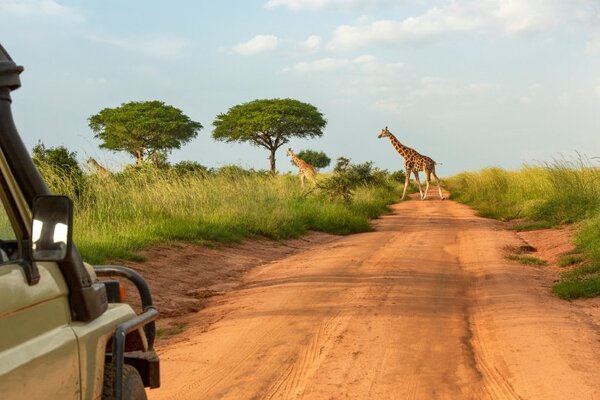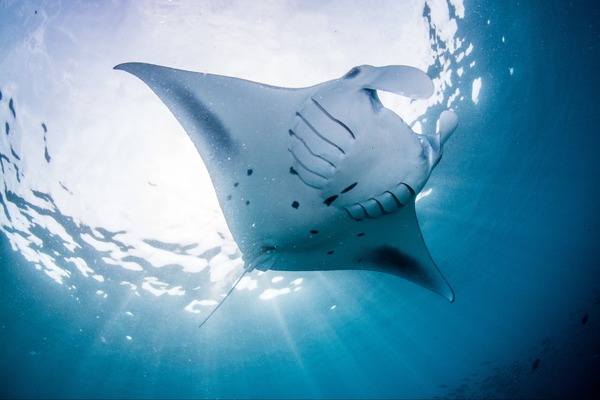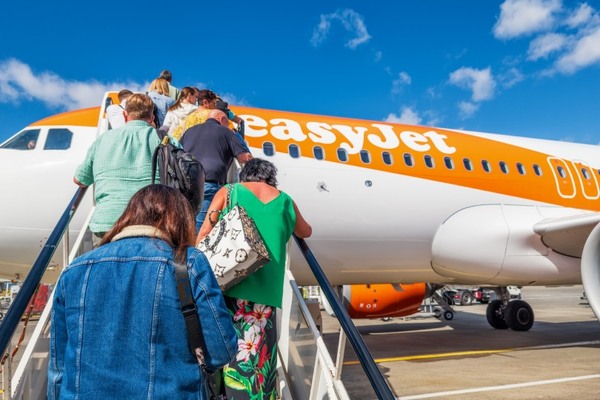The Big Question: Should travel firms still be selling captive animal attractions?
 James Chapple
James ChappleAnimal welfare has been an important and emotive focus for travel for many years – so is the tide turning against attractions showcasing animals outside their natural habitat? And can some still be justified?
At TTG, we believe in encouraging high-quality debate and discussion to drive progress. After Thomas Cook last month announced it would stop selling captive cetacean attractions – those featuring dolphins, orcas or whales – our Big Question series continues in August with an assessment of travel’s progress on animal welfare, paying particular attention to captive animal attractions.
Every year, millions of tourists enjoy holidays that centre around seeing or observing creatures, and travel has long sold experiences that feature animals.
But as time has gone on, travel has begun to reassess its relationship with the natural world – especially when it comes to offering experiences where animals have been removed from their natural habitat or eco-system, or where they are involved in activities that are clearly detrimental to their health and welfare.
The subject has also become an increasingly important consideration for travel’s longer-term sustainability ambitions, particularly with interest in wildlife tourism continuing to grow off the back of the pandemic and a broader desire to preserve the natural world and its inhabitants to safeguard the planet’s future.
What do you think? Join in the debate in the comments section below, or email feedback@ttgmedia.com. Alternatively, head to one of TTG’s social media channels to get involved.
'Protecting eco-systems has never been more important'
Wild animals should be viewed, with no contact or interaction, doing what they do best – living in the wild. Captive animal attractions can cause lifelong trauma for animals and puts them in unnatural and stressful situations. The unique needs of wild animals can never be fully met in captive environments.
Animals are also a vital part of our natural eco-system. Evidence shows strong, healthy eco-systems can help us build resilience and adapt to climate impacts. Letting animals live and thrive in their natural eco-systems makes critical allies in our fight against the climate and biodiversity crises.
Interest in wildlife tourism is growing off the back of the pandemic with travellers keen to experience the world’s natural wonders, including its creatures. Observing wild animals as they naturally occur, not by how they respond to our presence, results in better wildlife tourism experiences for all.
It’s something we are always conscious of at Intrepid. We were the first global tour operator to stop offering elephant rides in 2014. We also teamed up with World Animal Protection to create a toolkit to empower other tour operators to implement their own responsible wildlife tourism policies.
This year, we audited our more than 140 wildlife experiences and removed suppliers that failed to meet our standards. Travellers have told us they appreciate being better informed and knowing their travel choices are not causing harm to animals.
While many travel companies are starting to integrate more ethical policies into their business, more needs to be done if we are going to secure the future of our natural world. Protecting the world’s wildlife, its key eco-systems and biodiversity, has never been more important.
Dr Susanne Etti is Intrepid Travel's global environmental impact manager.
'Not all animal attractions are created equal'
I went on my first safari in South Africa only four years ago; it was exhilarating, uplifting and educational. Out in the wild, a local guide shared their knowledge of the birds and the plant life, and the excitement of spotting a lion lazing in the shade was a true pleasure.
It’s this community-based wildlife tourism that offers travellers an experience they will cherish, and protects the biodiversity tourism relies upon.
But not all animal attractions are created equal. Captive animals are reliant on their keepers to provide for their specific needs, and if managed badly this can result in poor welfare and threaten survival. With experts and, increasingly, the public no longer considering captivity required – or acceptable – due to the negative impacts on animal welfare, things are changing.
Take for example captive whales, dolphins and porpoises, collectively known as cetaceans. Ticket sales for these attractions are declining, and facilities are closing as public and political sentiment changes – the only remaining captive orcas in North America are held by one company, SeaWorld.
Due to public pressure, SeaWorld has ended all import, export and breeding of orcas. Yet more than 3,600 cetaceans remain in captivity worldwide, and more sanctuaries are needed to provide suitable homes for displaced animals.
By empowering everyone to make different decisions, we can guide the industry towards change that favours animal viewing in their native habitats and supports marine sanctuary creation to support relocation and retirement of captive whales and dolphins.
Our ultimate objective? To eliminate practices that jeopardise the welfare of animals and threaten wildlife or their fragile natural habitats.
Claire Ross is Kuoni's director of sustainability.
'It's nuanced – there's no straight "yes" or "no" answer'
There’s significant appetite among UK tourists to see animals while on holiday, and many attractions and activities support important conservation work. Animal attraction standards and practices vary hugely globally, which is why Abta has a big focus on driving up animal welfare standards in tourism.
We’ve worked closely with stakeholders, including animal welfare experts, to produce evidence-based industry guidelines. They cover a range of animal welfare issues and activities, as well as a list of unacceptable practices.
While these guidelines are voluntary, Abta members and suppliers are using them to raise standards at attractions, and to inform their own animal welfare policies – including their decisions on the activities they do and don’t sell.
We support the principles of the current legislation passing through parliament proposing to ban the sale and advertising of certain low-welfare overseas animal attractions, which aligns with Abta’s stance on unacceptable practices around riding or bathing elephants.
It’s key to recognise it will still be possible for UK tourists to buy these attractions in-resort, while a blanket ban would risk removing important leverage UK tourists bring to encourage standards to be raised around the world.
Moreover, banning the sale of activities involving any overseas animals in captivity – as most of these activities are not prohibited in zoos or other UK places – would seem disproportionate.
It’s a nuanced question, without a straight “yes” or “no” answer. Our role is to continue to work with stakeholders and use our guidelines to help travel companies and their suppliers to increase animal welfare standards.
Carol Rose is Abta's head of sustainability.
'Travel should support facilities with high standards'
This question shows how little we are aware of today’s natural world. Captivity is a state wherein humans or other animals are confined to a particular space and prevented from leaving or moving freely.
Many national parks, which are among the safest spaces for wildlife, fit well with this definition. Several species can no longer migrate as they did centuries ago, and there is intense management of the parks to ensure these animals thrive.
Then there are standards. If you seek medical attention or have an opportunity to study at a university, do you randomly choose where you go? No, when you have options, you aim for high standards.
The same applies to zoos and aquariums – there are options and distinctions. The World Association of Zoos and Aquariums (WAZA) is a network of progressive zoological body and WAZA members are saving species on the brink of extinction and mainstreaming nature.
Zoos and aquariums rely on accreditations and certifications to evidence the care they provide animals – further increasing transparency. But in recent years, some tourism providers have failed to make a distinction [and recognise] what conservation-committed and scientifically run zoos and aquariums are achieving.
Not supporting organisations that are trying to bring positive social change is wrong and does society a disservice. Not making the distinction between an organisation with high standards and a negligent one is wrong.
If the travel sector is truly engaged with the UN’s Sustainable Development Goals and other global frameworks aiming to encourage responsible decision making, we invite them to connect with WAZA to learn what good zoos and aquariums are offering current and future generations.
Martin Zordan is chief executive of the World Association of Zoos and Aquariums.
'Us in travel can be the catalyst for change'
Over many years, and in the name of entertaining tourists, captive animals have been deprived of their natural habitats, social structures and opportunities for enrichment, causing them profound suffering and frustration.
Fundamentally, attractions which exploit animals in this way are incompatible with modern society’s evolving understanding of animal rights and the simple value we place on living things.
Times have changed, and we now have a greater understanding of the extent of animal exploitation, the intelligence and emotional complexity of many species, and what captivity can do to destroy it.
As an industry, we have a responsibility to take this knowledge and shape the future of ethical travel across the world, leaving cruel attractions behind.
Education is critical to changing attitudes and behaviours. While there are some that are knowingly exploiting animals for financial gain, others sell animals experiences to put food on the table or because working animals are a long-standing part of their culture and daily life.
The path to progress is not shutting the door on anyone that doesn’t fit the bill. At Luxtripper, we work with organisations and individuals to explain why we wouldn’t sell their experiences.
We want to help people from different cultures and with different practices to understand that in 2023, there is no longer a place for captive animal experiences in our world.
We suggest changes that would make a future partnership possible and reinforce that there is a market for responsible tourism that benefits all involved.
But it needs to be an industry-wide endeavour – by leading with education and celebrating the good, we can be a catalyst for change that will ensure these animals remain in our world for longer.
Nena Chaletzos is founder and chief executive of Luxtripper.
The Big Question by TTG
The Big Question is a monthly feature from TTG taking on some of the burning issues facing travel through expert commentary, insight and debate. While it's not designed to be adversarial, it won't flinch from placing a spotlight on some often uncomfortable topics travel – like it or not – will one day have to reckon with.
- Is the 'S' word starting to put customers off?
- Is direct action targeting commercial travel ever justifiable?
- Is it time to rebrand the travel agent?
- Does travel have an ageism problem?
- Has travel added too much capacity for summer 2024?
- Can celebrity endorsements ever be truly responsible?
- Do women have equal opportunity to progress in travel?
- Should the cruise sector shout about lower prices?
- Is it time for a change of government?
- Has the pandemic changed peaks for ever?
- Is it finally time to turn APD into an environmental tax?
- Does all-inclusive value come at too high a price for the planet?
- Can cruise sail ahead of land-based breaks?
- Should travel companies still be selling captive animal attractions?
- Can aviation do more to help disabled travellers?
- Is there a future for private jets in travel?
- Should agents start charging for their time?
- Is it finally time to reform the Atol scheme?
- Should we be flying during a climate crisis?
Sign up for weekday travel news and analysis straight to your inbox

James Chapple
Supplier Directory
Find contacts for 260+ travel suppliers. Type name, company or destination.
















